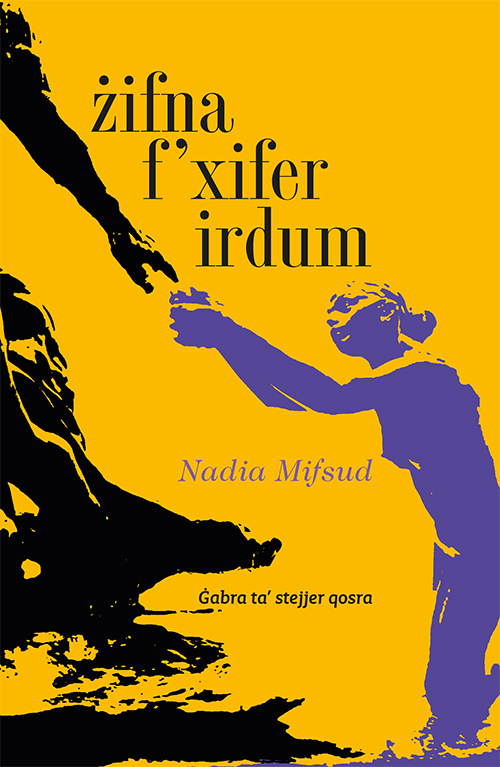Żifna f'xifer irdum
by Nadia Mifsud
Żifna f’xifer irdum (literally “A Dance at the Edge of a Cliff”) is poet and novelist’s Nadia Mifsud first published collection of short stories. It includes revised versions of four works which had first appeared on Leħen il-Malti, the yearly literary journal of the Għaqda tal-Malti – Università, alongside other pieces.
These stories present us with an intimate look at the lives of ordinary people, most of them women – their loves, hates, desires and fears. Their protagonists and settings vary. Teddy is arrated by a young mother living in the UK whose daughters are taken by Social Services. Togħma ta’ trab (“A Taste of Dust”) features an Afghan bacha posh – a girl who is brought up as a boy. However, it is fair to say that many of the stories reflect the author’s own experience as a Maltese woman who has lived abroad, but who still feels the pull of her native country. This is particularly evident in Requiem, the poignant final piece (divided into sections mirroring the movements of a musical work), in which the female narrator returns to Malta from abroad to spend some time with her mother on her deathbed. She revisits her native Cottonera (Triq Hanover is an actual street in Bormla) – an opportunity for the author to nostalgically portray the places where she grew up.
Interestingly, some of the stories turn out to be linked – there’s a thrill in realising that a story provides a different perspective to an earlier work in the book (e.g. Barmil tal-Art/Ix-Xatt tal-Isla/Il-MoMA).
As in the case of Ir-Rota Daret Dawra (Kważi) Sħiħa, I was impressed by the fact that even in writing prose, Mifsud remains a poet. She is a poet in her sense of observation and her capacity of evoking a feeling or a sense of place with just a few well-chosen words. She is a poet in the musicality and rhythm of the prose, which draws you on effortlessly. And yet, the stories are also written in an idiom which feels fresh, contemporary and authentic. There’s no denying that this is a refined, “literary” book, but it is also recognisably written in the language of the individuals who walk through its pages. A compelling and haunting read.








No comments:
Post a Comment